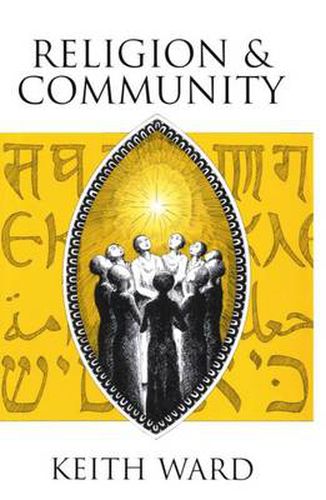Readings Newsletter
Become a Readings Member to make your shopping experience even easier.
Sign in or sign up for free!
You’re not far away from qualifying for FREE standard shipping within Australia
You’ve qualified for FREE standard shipping within Australia
The cart is loading…






Religion is an important social force, both for good and evil, in the modern world. In the final volume of his comparative theology, Keith Ward considers the main ways in which religion and society interact, and the ways in which the major world religions need to adapt themselves in the modern world. These religions are examined as forms of social life, ranging from communities which seek to renounce the world, to those which seek to embody the laws of God in society, those which see religions in critical dialogue with social structures, and those which see religion as a primarily individual matter. \n\nThe ideas of eretz Yisrael, the umma of Islam, the Buddhist sangha, the Christian church, and the Hindu sampradaya are critically analysed. Ward also considers the doctrine of the church in Aquinas, Calvin, Schleiermacher, and Tillich, and develops a view of the church in a global perspective by means of both a historical and thematic approach. He proposes a radical vision of the church as a person-affirming, world-transforming society in the emerging global community of many faiths and cultures. \n\nThe relation of religious belief and morality, and the ambiguous role of religion in society, is investigated, and the need for a new religious paradigm is defended, expressing a global perspective without insistence on uniformity.
$9.00 standard shipping within Australia
FREE standard shipping within Australia for orders over $100.00
Express & International shipping calculated at checkout
Religion is an important social force, both for good and evil, in the modern world. In the final volume of his comparative theology, Keith Ward considers the main ways in which religion and society interact, and the ways in which the major world religions need to adapt themselves in the modern world. These religions are examined as forms of social life, ranging from communities which seek to renounce the world, to those which seek to embody the laws of God in society, those which see religions in critical dialogue with social structures, and those which see religion as a primarily individual matter. \n\nThe ideas of eretz Yisrael, the umma of Islam, the Buddhist sangha, the Christian church, and the Hindu sampradaya are critically analysed. Ward also considers the doctrine of the church in Aquinas, Calvin, Schleiermacher, and Tillich, and develops a view of the church in a global perspective by means of both a historical and thematic approach. He proposes a radical vision of the church as a person-affirming, world-transforming society in the emerging global community of many faiths and cultures. \n\nThe relation of religious belief and morality, and the ambiguous role of religion in society, is investigated, and the need for a new religious paradigm is defended, expressing a global perspective without insistence on uniformity.